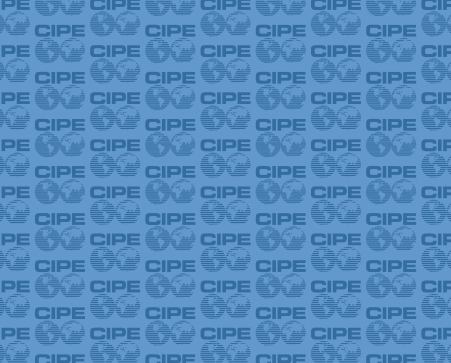
This article originally appeared on the Thomson Reuters TrustLaw Governance blog.
Thailand lifted its state of emergency, and the February 2 elections have been annulled. Encouragingly, the leaders of the government and the opposition are signaling – albeit tentatively and obliquely – a willingness to negotiate an end to the country’s ongoing political crisis. But even if Thailand can extricate itself from its latest political quagmire, the next crisis is probably not far off if the underlying problems are not addressed.
More than any other issue, corruption has served to delegitimize successive governments in the eyes of competing segments of Thai society. In 2006, the military ousted an elected government and in 2008, the Supreme Court disbanded an elected government; in both cases, the stated justification was corruption. Likewise, allegations of corruption are among the paramount drivers of the anti-government protests taking place in Bangkok today, just as they were in the color-coordinated protests of recent years.
And this frustration with corruption is not limited to corruption in electoral processes or campaign fraud. Corruption is a daily phenomenon for many citizens and businesses, and people are fed up with it.
Problems related to corruption are not new in Thailand or in the region; the country scores near the median of Southeast Asian nations on most corruption indices and scorecards. But there is evidence that the problem of corruption is getting worse. On the World Bank’s Governance Indicators, Thailand ranked in the 46th percentile on the issue of controlling corruption in 2012, down from the 50th percentile in 2009, the 53rd percentile in 2005, and the 60thpercentile in 1998.
With pending corruption charges against the Prime Minister, an unclear electoral roadmap, and massive public protests choking the streets of Bangkok, the government of Thailand is paralyzed. So in the present environment, a government-based anti-corruption campaign seeking legislative changes and substantive policy solutions is highly unlikely to succeed.
If the cycle of political instability that has dogged Thailand is to be stopped, progress must be made in the fight against corruption, and that progress must be substantial and sustainable. An anti-corruption effort that focuses on the supply side of corruption and involves private sector reforms and solutions is best positioned to realize meaningful results in Thailand’s current political climate.
The Center for International Private Enterprise (CIPE), partnering with the Thai Institute of Directors (IOD), developed such a private sector approach, and this collective action initiative is having a considerable impact.
CIPE and IOD built a still-expanding coalition of Thai and multinational businessesdedicated to upholding the highest possible standards of corporate governance, compliance, and anti-bribery protocols. To join this coalition, a company signs the “Joint Declaration On Fighting Corruption” which lays out specific and tangible actions that the company must take to prevent any form of corruption on the part of its employees, partners, and suppliers. CIPE and IOD developed a certification mechanism that verifies whether or not coalition companies are actually doing what they pledge to do. Additionally, IOD has provided a series of training programs to help companies comply with coalition standards.
To date, more than 300 companies have joined this coalition, including the largest Thai and multinational businesses in the country. This coalition of companies represents nearly 15% of the entire Thai GDP, and more than 1 million Thai employees. With a growing number of companies stepping forward to proactively reduce corruption-related risks, this initiative can help change accepted norms and business practices in the Thai marketplace. In other words, this collective action against corruption campaign is changing “the way things are done” in Thailand.
This initiative is also improving public perceptions, in that there is considerably more optimism that progress can be made in the fight against corruption and more and more companies want to play a role in this progress. IOD conducted a survey of more than 1,000 businesses in Thailand in 2013, and compared the results to baseline numbers gathered in a 2010 survey: 93% of 2013 respondents perceived the level of corruption as “high” or “very high” in Thailand, up from 81% in 2010. However, the percentage of respondents who believed corruption “can be addressed in the near future” doubled from 2010 to 2013, and the percentage of respondents who “definitely” want to be part of a collective action initiative against corruption increased from 14% to 51%.
Of course, bold government action will be necessary for a comprehensive approach to tackling long-term corruption in Thailand. But in the meantime, the Thai business community is doing its part.
John Morrell is a Program Officer for Asia at CIPE.
Published Date: April 01, 2014
